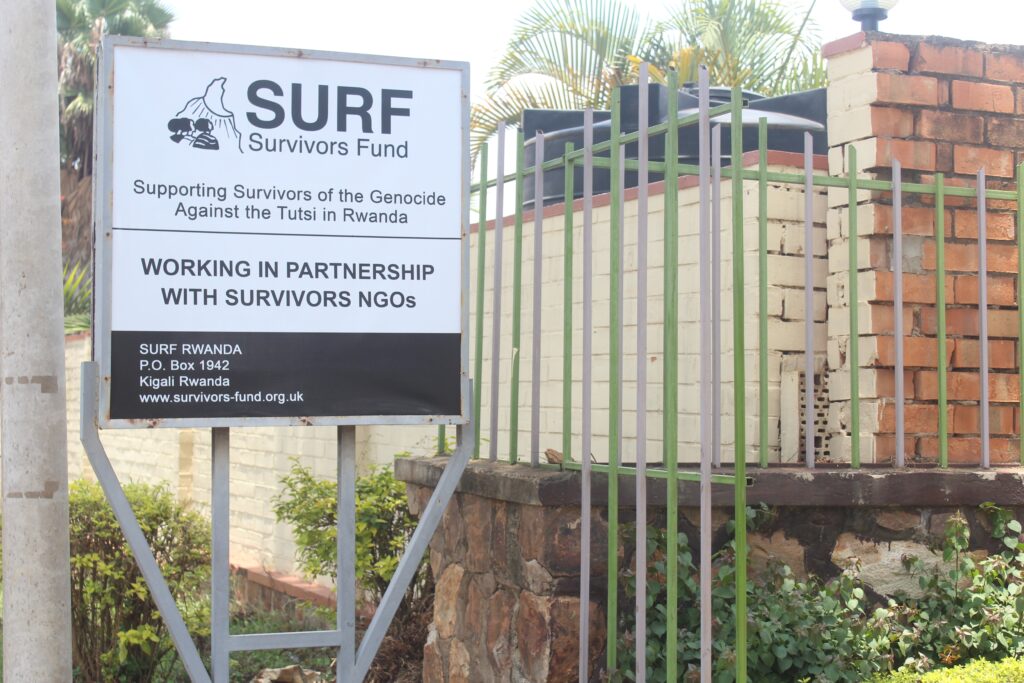
This is one of a series of extracts of questions and answers from An interview with Samuel Munderere and David Russell of Survivors Fund (SURF) on reparative justice for survivors of the 1994 Genocide against the Tutsi in Rwanda published in a Special Issue of Peace Review, a journal of social justice, to mark the 30th Anniversary of the Genocide against the Tutsi in Rwanda.
Could you describe some of the projects SURF has pursued with the UK’s Department for International Development, their impact, and how they could be a model for other national international development aid agencies such as US AID (US Agency for International Development) and the national aid agencies of European Union member states?
Survivors Fund (SURF) has collaborated with the UK’s Department for International Development (DFID) on several projects aimed at supporting survivors of the Genocide against the Tutsi in Rwanda, principally in partnership with AVEGA.
Survivors Fund (SURF) has worked with AVEGA since its establishment in 1995, with SURF’s Founder Mary Kayitesi Blewitt supporting the original group of 50 genocide widows who established AVEGA to formally register the organisation as an NGO in Rwanda. Mary founded SURF in 1997 initially to advocate and raise funds for the work of AVEGA, and we continue to support their work to this day.
AVEGA was a lead partner on the five-year £4.25 million DFID-funded Care and Treatment Project for HIV+ Women Survivors, which ran from 2006 to 2010, and succeeded in strengthening its capacity, in a project that supported over 2,500 HIV+ genocide widows to access antiretroviral treatment through the establishment of four dedicated health clinics. AVEGA was the lead partner in the DFID-funded Widowed Survivors Empowerment Project (WSEP), which ran from 2012 to 2015, with a total project budget of £1.8m over three years, which enabled AVEGA to set up new offices in the Southern and Northern Provinces of Rwanda, supporting over 10,000 genocide widows. From 2019 through to 2021, SURF received a further £175k for the Empowering Vulnerable Genocide Widows in Western Rwanda to Alleviate Extreme Poverty (EVWEP) which provided holistic support to genocide widows in membership of AVEGA across two districts of the Western Province of Rwanda.
These projects could serve as a model for other international development aid agencies, such as USAID and the national aid agencies of European Union member states, in several ways:
Holistic Approach: SURF’s projects take a holistic approach to supporting survivors, addressing both their economic and psychosocial needs. This integrated approach recognises that survivors’ well-being is interconnected and requires comprehensive support.
Community Engagement: SURF’s projects involve active participation from the communities affected by the genocide. By engaging community members in the design and implementation of programmes, and working through dedicated local survivor’s organisations, SURF ensures that interventions are culturally appropriate and responsive to local needs.
Long-term Commitment: SURF’s projects demonstrate a long-term commitment to supporting survivors. Sustainable development takes time, and SURF’s ongoing efforts reflect a recognition of the complex and enduring challenges faced by genocide survivors.
Collaboration and Partnership: SURF collaborates with a range of partners, including government agencies, NGOs, and most importantly local survivor’s organisations, to maximise the impact of its projects. This collaborative approach fosters coordination, resource-sharing, and knowledge exchange, leading to more effective interventions.
By adopting these principles and strategies, other international development aid agencies can enhance their support for survivors of conflict and genocide, promote sustainable development, and contribute to peacebuilding and reconciliation efforts around the world.
